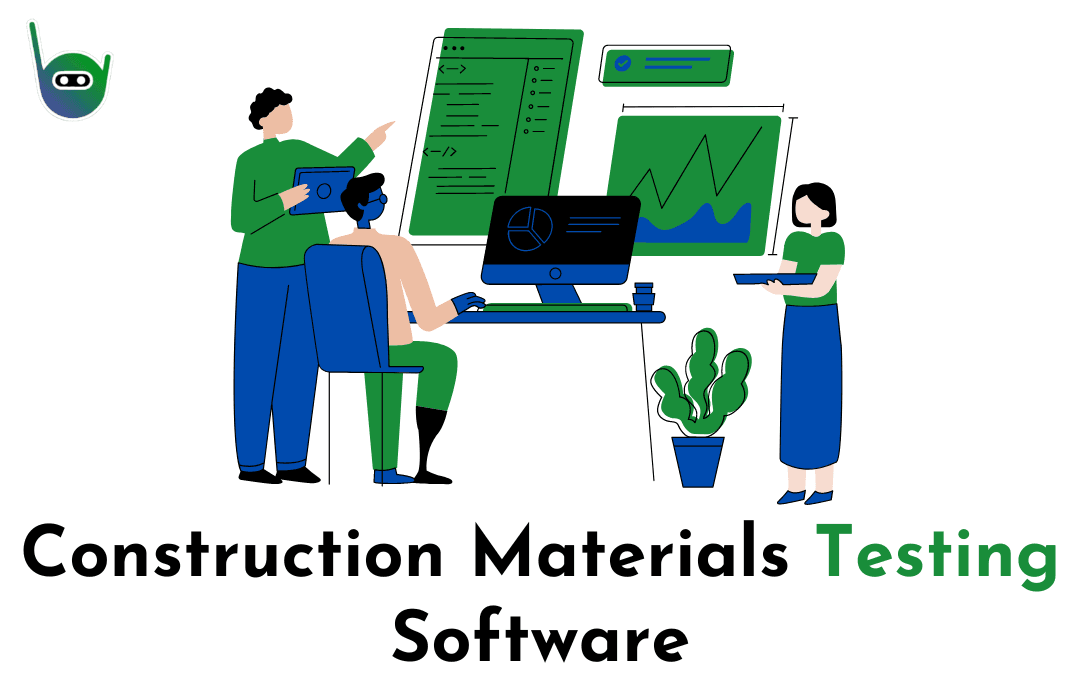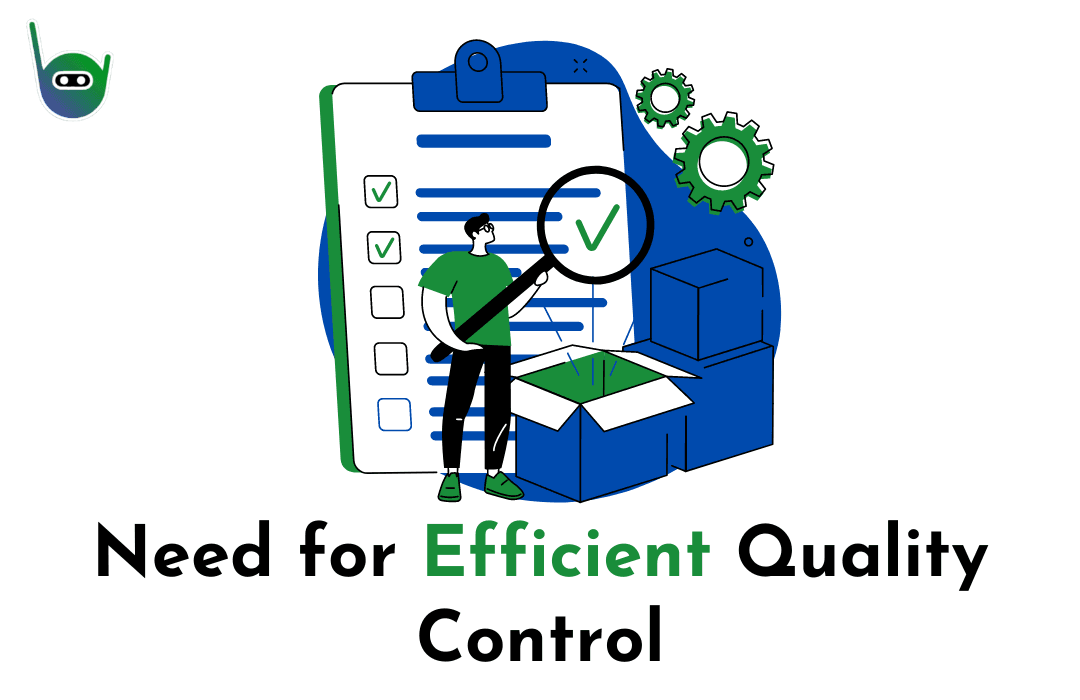In this article, we will explore the benefits, features, and implementation of construction materials testing software, highlighting its role in transforming quality control in the construction industry. Construction projects require rigorous quality control measures to ensure the durability, safety, and compliance of structures. To meet these demands efficiently, construction companies are increasingly turning to construction materials testing software. This advanced technology revolutionizes the way materials are tested and managed, offering streamlined processes, improved accuracy, and enhanced project outcomes.
Benefits Of Testing Software
 Identifying and Fixing Defects: Software testing helps identify defects and issues early in the development process, allowing for timely fixes and reducing the cost of addressing problems later.
Identifying and Fixing Defects: Software testing helps identify defects and issues early in the development process, allowing for timely fixes and reducing the cost of addressing problems later.
Improved Software Quality: Thorough testing ensures higher software quality, leading to a more reliable, stable, and user-friendly product.
Increased Customer Satisfaction: A well-tested software product meets user expectations and leads to higher customer satisfaction and loyalty.
Risk Mitigation: Testing helps mitigate the risks associated with software failures, which could lead to financial losses and damage to a company's reputation.
Accurate Decision Making: Testing provides valuable insights into the software's performance, enabling data-driven and informed decision making.
Compliance and Regulation Adherence: Software testing ensures that the product meets industry standards, regulations, and compliance requirements.
Optimized Performance: Performance testing helps identify bottlenecks and ensures that the software can handle expected user loads effectively.
Early Detection of Compatibility Issues: Testing on various platforms and devices helps identify compatibility issues, allowing developers to address them before release.
Understanding Construction Materials Testing Software

Construction materials testing involves conducting a series of tests to assess the properties and characteristics of materials. These tests help determine the strength, durability, and suitability of materials for specific construction applications. They are conducted in compliance with industry standards and regulatory requirements. Construction materials testing covers a wide range of parameters, including compressive strength, tensile strength, moisture content, density, and more.
The Need for Efficient Quality Control

Efficient quality control is essential to ensure that construction projects meet the desired standards and specifications. Manual testing processes are prone to human errors, inconsistencies, and delays. These limitations can lead to compromised structural integrity, increased costs, and project delays. To address these challenges, construction materials testing software offers a comprehensive solution.
An Overview of Construction Materials Testing Software
Construction materials testing software is a digital platform that enables construction companies to streamline their quality control processes. It provides a centralized system for managing testing data, automates test result calculations, generates comprehensive reports, and facilitates seamless collaboration among project stakeholders. This software eliminates the need for manual data entry and simplifies the overall testing workflow.
Key Features of Construction Materials Testing Software
a. Test Planning and Scheduling: Construction materials testing software allows project managers to plan and schedule tests efficiently. It provides a visual calendar interface for allocating resources, assigning tasks, and tracking testing progress.
b. Real-time Data Capture: With mobile compatibility, field technicians can directly input test data into the software using their devices. This feature ensures real-time data capture, reduces data entry errors, and accelerates the availability of test results.
c. Automated Calculations: The software automates complex calculations required for analyzing test results. It eliminates manual errors, ensures accuracy, and enables quick data interpretation.
d. Reporting and Documentation: Construction materials testing software generates comprehensive reports with detailed test results, graphs, and statistical analysis. These reports can be customized to meet project requirements and facilitate compliance with regulatory standards.
e. Data Integration: The software allows seamless integration with existing systems such as laboratory information management systems (LIMS) and enterprise resource planning (ERP) software. This integration enhances data integrity and eliminates duplicate data entry.
Streamlining Material Testing Processes
Construction materials testing software streamlines the entire testing process. It provides a centralized platform where project managers can track the status of ongoing tests, monitor progress, and allocate resources efficiently. Field technicians can access test plans, specifications, and procedures through the software, ensuring standardized testing protocols across the organization. Moreover, the software's intuitive user interface simplifies the navigation and input of test data, saving time and reducing the chances of errors.
Ensuring Compliance and Documentation
Compliance with industry standards and regulatory requirements is of utmost importance in the construction industry. Construction materials testing software helps construction companies meet these compliance obligations effectively. By automating data capture, test calculations, and report generation, the software ensures consistent documentation of test results. This documentation serves as an essential record for auditing purposes and facilitates regulatory compliance.
Enhancing Collaboration and Communication
Successful construction projects require effective collaboration and communication among various stakeholders, including project managers, engineers, architects, and contractors. Construction materials testing software offers a collaborative platform where stakeholders can access real-time test data, share reports, and discuss findings. This enhances transparency, reduces miscommunication, and enables timely decision-making.
Integration with Existing Systems

Construction materials testing software integrates seamlessly with existing software systems used in construction companies. Whether it is a LIMS, ERP, or project management software, the integration ensures a smooth flow of data between different systems. This eliminates the need for manual data transfer and reduces the chances of data discrepancies. The integrated approach enhances operational efficiency and data accuracy throughout the construction process.
Implementing Construction Materials Testing Software
Implementing construction materials testing software requires careful planning and execution. The following steps are crucial for a successful implementation:
a. Needs Assessment: Identify the specific requirements and challenges faced by your construction company regarding materials testing. Evaluate the existing processes, workflows, and systems in place.
b. Vendor Evaluation: Research and evaluate different construction materials testing software providers. Consider factors such as features, scalability, support, and cost-effectiveness.
c. Training and Onboarding: Ensure proper training and onboarding for all users of the software. Familiarize them with the features, functionalities, and best practices to maximize their benefits.
d. Data Migration: If you have existing test data in other systems, ensure a smooth transition by migrating the data to the new software. Verify data integrity and accuracy during the migration process.
e. Continuous Improvement: Regularly assess the performance and impact of the construction materials testing software. Seek feedback from users and stakeholders to identify areas for improvement and optimize its usage.
Training and Support
To ensure the successful adoption and utilization of construction materials testing software, adequate training and support are essential. The software provider should offer comprehensive training programs tailored to the needs of different user roles within the organization. Additionally, prompt technical support and troubleshooting assistance should be available to address any issues that may arise during the implementation and usage of the software.
Future Trends in Construction Materials Testing Software

The construction materials testing software industry continues to evolve, driven by advancements in technology and the growing demand for efficiency. Some emerging trends include:
a. Artificial Intelligence (AI) and Machine Learning (ML): AI and ML algorithms are being integrated into construction materials testing software to automate data analysis, detect patterns, and provide predictive insights.
b. Internet of Things (IoT) Integration: IoT devices such as sensors and wearables are being used to collect real-time data during materials testing. Construction materials testing software can integrate with IoT devices to capture and analyze this data, enhancing the accuracy and speed of test results.
c. Cloud-Based Solutions: Cloud-based construction materials testing software offers enhanced accessibility, scalability, and data security. It allows seamless collaboration among distributed project teams and facilitates remote access to test data and reports.
Read More About How to Use AI in Automation Testing
Conclusion
Construction materials testing software has revolutionized quality control practices in the construction industry. By streamlining material testing processes, ensuring compliance, enhancing collaboration, and integrating with existing systems, this software empowers construction companies to deliver projects with superior quality, efficiency, and safety. As technology continues to advance, the future holds even more possibilities for construction materials testing software, enabling further optimization and innovation in the construction industry.
Revolutionize your software testing with Robonito, the ultimate no-code RPA automation testing tool. Say goodbye to endless testing hours – Robonito slashes testing time by a staggering 98%! Ready to experience the future of software testing? BOOK A FREE DEMO NOW and transform your testing process today!
FAQs
Q1: Can construction materials testing software be customized to our specific testing requirements?
Yes, construction materials testing software can be customized to meet the specific testing requirements of your construction projects. The software provider can work with your organization to tailor the features, workflows, and reporting capabilities to align with your testing protocols and industry standards.
Q2: Is construction materials testing software compatible with mobile devices?
Yes, construction materials testing software is designed to be compatible with mobile devices such as smartphones and tablets. Field technicians can use their mobile devices to input test data directly into the software, ensuring real-time data capture and accelerating the availability of test results.
Q3: Can construction materials testing software integrate with our existing laboratory information management system (LIMS)?
Yes, construction materials testing software can integrate with existing LIMS and other software systems used in construction companies. This integration ensures a seamless flow of data between different systems, eliminating the need for manual data transfer and reducing data discrepancies.
Q4: How does construction materials testing software enhance collaboration among project stakeholders?
Construction materials testing software provides a collaborative platform where project stakeholders can access real-time test data, share reports, and engage in discussions. This enhances transparency, facilitates effective communication, and enables timely decision-making, leading to improved project outcomes.
Q5: What are the future trends in construction materials testing software?
Some future trends in construction materials testing software include the integration of artificial intelligence and machine learning algorithms for automated data analysis, the integration of IoT devices for real-time data collection, and the adoption of cloud-based solutions for enhanced accessibility and scalability. These trends aim to further optimize the testing processes and improve the efficiency of construction materials testing.
